A little over a month ago, Mohsen Rezaei, Iran’s current Vice President of Economic Affairs and one of several officials accused of having orchestrated the 1994 AMIA bombing in Argentina in 1994, walked with his head held high as part of a delegation to Nicaragua. Rezaei was attending the swearing-in of the Sandinista dictator Daniel Ortega, and did so while subject to an Interpol red notice and thus an international arrest warrant. This appeared to mean nothing to any of those present.
On July 18, 1994, in the depths of the Argentine winter, a car bomb exploded at the headquarters of a Jewish mutual in Buenos Aires, killing 85 people and injuring more than 300. Rezaei, as a senior IRGC commander, was later charged by Argentine prosecutors with aggravated murder. He was said to have worked together with Hezbollah and local operatives to plan and carry out the attack.
Among the 85 lives extinguished on that cold morning in July 1994 was Paola Czyzewski, a 21-year-old who had accompanied her mother, Ana María Blugerman, to work. At 9.53am when the bomb exploded, Paola and her mother were separated. Ana María survived, but her daughter died under the rubble.
Out of the ashes of unthinkable heartbreak, in the decades that followed Paola’s dad Luis Czyzewski became the face of the fight for justice in the AMIA case. Since 1994 he has been an active speaker at every related public event, and is one of the complainants in the now-infamous Iran Pact case, in which members the Argentine government conspired with Iran to absolve the perpetrators.
Like others, Czyzewski was horrified to see Mohsen Rezaei moving freely in Nicaragua, especially before the eyes of the Argentine ambassador, Daniel Capitanich. "He said that he was far away from the representatives of Iran [at the ceremony], and didn’t know who that person was, didn’t know his face,” he told IranWire. “These arguments are so childish, they’d be a laughing matter if it weren’t such a serious issue. The worst thing was that the Argentine foreign minister endorsed their case."
It took 24 hours for the Argentine government to issue a statement on what had happened. “Those communications were belated and intended to justify the unjustifiable. All of it was violent and painful. I cannot discern if it was deliberate, or the product of the inexperience on the part of our officials. But whatever the reason, it was one more blow to those of us who fight for memory and justice.”
Wreckage of a Dream, Savings, and a Future
Paola was the middle child of Luis and Ana María. "She had a stronger character than our other two children, but she was also the most independent, and very determined in her decisions," Luis said.
At 21, Paula was in her third year of law school. While studying, she worked at her parents' accounting firm to save up some money. "Paola always said her dream was to take a trip when she finished her studies," Luis added. "After she passed away, we found a wallet in one of her drawers with all the money she had saved. The killers didn’t let her fulfil her wish.
“Paola still had half of her university course to go. But I remember her saying she had her future very much planned out: so much so that when we asked her how her life was going to be, Paola said she was going to be the mother of two sons, whom she would call Kevin and José.”
At the time the bomb exploded at 9:53 am, Luis himself was stood in the La Tablada Jewish cemetery, miles away from Buenos Aires, working on an audit. His voice shook as he recounted to IranWire the moment the phone rang. The person at the other end of the receiver managed to shout “A bomb in the AMIA!" – and then the line was cut off. Suddenly all the news channels were broadcasting from that same place, which had been converted in seconds into a warzone.
Both Ana María and Luis worked at the AMIA, but Luis was not always based in the main building. The night before, Ana María had asked Paola to help her with a few tasks there, as she was on holiday from university at the time. The pair arrived at 8.30am; Paola asked her mother for a coffee, but since the building was undergoing repairs, the kitchen was not open that day. So they ordered a coffee from a nearby café.
The last thing Luis knows about what happened to them that day was that the AMIA security guard Ana Maria's office to say the boy from the café was there with their coffees. Paola took the elevator down to the ground floor, and the bomb exploded just as she was opening the doors, barely meters away. Paola died, the boy who had brought her coffee died, and all the security guards at the entrance died.
Ana Maria only survived because she had been in an office located at the back of the building, about half of which survived the blast. But it would be two days before rescue workers combing the wreckage could confirm Paola’s death.
Jorge, the Boy from the Café
Jorge, who brought the coffees to the ground floor of AMIA that day, was just 18 years old. He was born in San Juan province and had been raised by his grandparents, moving to Buenos Aires in 1993 to make a living for himself in the capital. In February 1994 he got a job at the café and was fairly happy there; he earned enough from his salary to both pay for his studies and send some money back to his grandparents in San Juan.
That good fortune, and all his ambitions for the future, was cut short on the morning of July 18. Seven full days later, Jorge's body was found by rescuers, a stone’s throw away from where investigators believe the bomb went off.
“Living” With the Death of a Child
Since 1994, Luis has become one of the essential references for outsiders seeking to understand the ramifications of the AMIA case, and what justice might look like. He has held fast to his principles despite the daily torment he still endures. "I only know that I have a mandate I feel Paola gave to me, and that mandate is to do what I am doing. I know that if this had happened to me, she’d be doing the same. I know I can’t drop my arms, even though I often feel the fight is only leading to failure.”
Luis has been asked many times by strangers how to go on living when a child dies. His response, he told IranWire, is always the same: "You never get over it. It’s strange; there is no word to express the situation in the Spanish language. When parents die, their son becomes an orphan. When a spouse dies, the [partner] who survives becomes the widow or widower. But when a son dies, there is no word for what happens to the father. Parents do not overcome or get out of that situation. They only learn to live with it.
"Someone once asked me if I’d been happy at any point since Paola's death. I was happy when my children got married, when my grandchildren were born, and when my other children finished their university careers. The burden I carry with me, and being happy when life gives you one of these moments, is not mutually exclusive. You can feel both".
There are other dimensions to the pain experienced by Luis and Ana María, which they share with others. Luis draws a parallel between their experience and that of the daughters of Alberto Nisman, the Argentine prosecutor murdered at the height of his work on the Iran Pact. Years later, for both of them, there is no justice to be found in Argentina; only official obfuscation.
“I had the opportunity to talk with Nisman’s eldest daughter about what her father was like,” Luis said, “and about how I saw him. I told her about his meetings with me, which always started the same way: Nisman would ask me if I had any other grandchildren, and I’d ask how his daughters were doing. When he started talking about them, you had to stop him because he’d never stop.
"I am convinced, as was Nisman, that the memorandum of understanding signed by the Argentine government with the Islamic Republic of Iran is one of the biggest stains Argentina has ever had on its history."
Antisemitism in Argentina and the Future of the AMIA Cause
Exporting the Islamic revolution has been a critical stated objective for the Iranian regime since the overthrow of Shah Mohammad Reza Pahlavi in 1979. Latin America was an ideal location, and Argentina the place where it all began. Nisman’s May submissions on the Iran Pact laid out the extent of Tehran’s political and cultural infiltration of the country over the decades.
Iranian officials, Nisman said, had installed “clandestine intelligence hubs aimed at sponsoring and committing acts of international terrorism... What begins with cultural and religious indoctrination culminates, in some cases, with the training of extremist fighters.”
Luis Czyzewski believes that creeping antisemitism in Argentine society should be given the same weight as Tehran-sponsored influence operations in the country and neighboring states. “It seems to me that the antisemitism that exists in Argentina, which is no different from that which exists throughout the world, has other roots; the fight against Iranian terrorism and antisemitism must be conducted with the same force".
IranWire also contacted Gabriel Anmuth of the Delegation of Argentine Israelite Associations (DAIA), the umbrella organisation that brings together all Argentine Jewish institutions, about the same issues. “Argentina, like most Western countries, has anti-Jewish imprints in its cultural folds,” Anmuth said. “This sometimes leads to associations with a certain anti-Jewish tinge to emerge in various minority sectors of political spaces. But I do not consider that Iranian infiltration has been the generator of antisemitism in Argentina.” Media coverage of attacks on the Israeli Embassy and AMIA, he said, always prompted isolated incidents of anti-Jewish reaction – but “although noisy, they are always [in the] minority and not representative.”
The Future of the AMIA Case
Since Nisman’s death the AMIA case has come to a standstill. For many, Mohsen Rezaei's recent visit to Nicaragua was a sign that Argentina's political representatives have little interest in resolving it. “Every day I denounce those responsible,” Luis told IranWire, “and I continue to demand that those with the mandate to do so prosecute them wherever they can. This situation has shown us the non-result the Interpol notices have had, and still have.”
Luis is convinced that the issue can only be advanced if Argentina permits itself a serious debate on the possibility of legislative change. “It is time to think about the possibility of implementing a so-called trial in absentia. This legal instrument is applied quite successfully in European countries to fight against mafias. It was applied in the Nuremberg Trials against Martin Bormann, and it would be a measure I consider adequate to be able to judge, in a double instance, the Iranian fugitives from Argentine justice.”
Gabriel Anmuth agrees. “The Jewish community lives in pain and relentless hope but will persevere in asking for justice,” he wrote to IranWire. “The AMIA cause, thanks to Nisman, could be elevated to the trial stage now, but the obstacle is Argentine procedural law, which requires the investigation of the accused. The Iranian defendants do not recognise the jurisdiction of the Argentine justices and will not appear [before them]. Therefore, no trial can begin. To unblock this, Argentine lawmakers must work on making trials viable even without the presence of the accused. In several countries worldwide, there are records of trials in absentia, especially concerning crimes against humanity.”
Author’s note:
This year marks the 28th anniversary of the AMIA bombing. The case is now longer than Paola Czyzewski's whole life, and that of Jorge, the boy from the café. Luis has spent more time seeking justice than the time he was able to share with his daughter.
The conversation with Luis Czyzewski was one of those encounters that leave much to learn from and reflect on. His memories, so sad but at the same time so full of wisdom, can be summed up in the following words: “When a son dies, it is as if one suddenly starts carrying a pack on one’s back, and you admit that you will carry that burden for the rest of your life. It is learning to realize that this will be upon our bodies as long as we live. It is possible that justice will never come, and that all those who had something to do with the murder of so many people will never be where they should be, in jail. But for Paola, for my children, and my grandchildren, I do what I am doing. Because I want them to be able to live in a fairer country than the one I had to live in.”
visit the accountability section
In this section of Iran Wire, you can contact the officials and launch your campaign for various problems




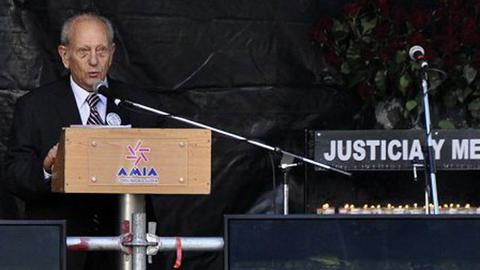
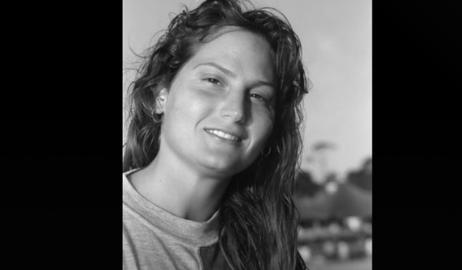

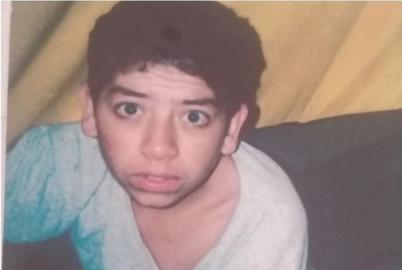
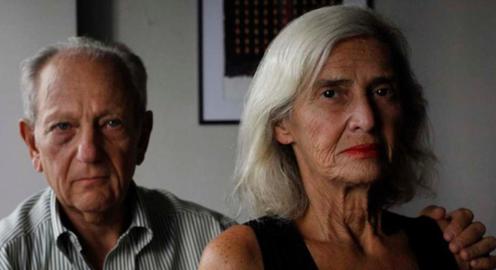


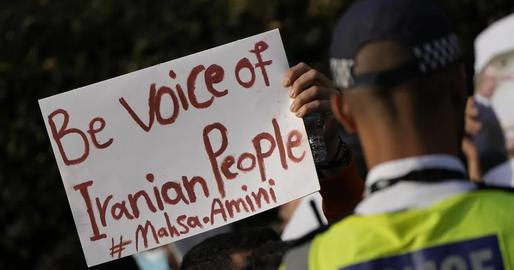
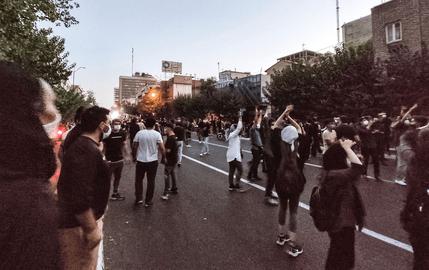
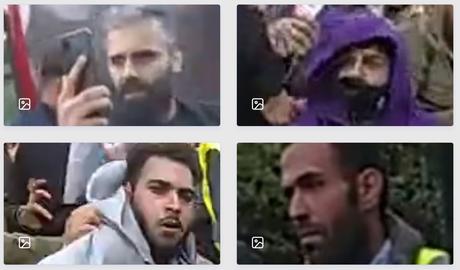
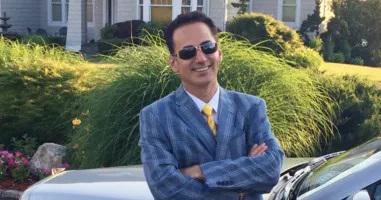
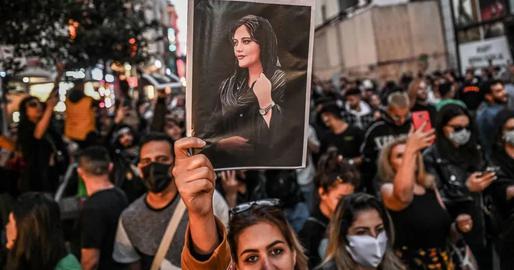
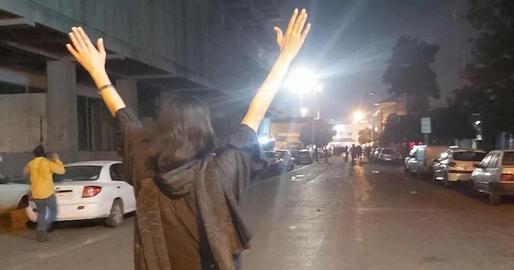

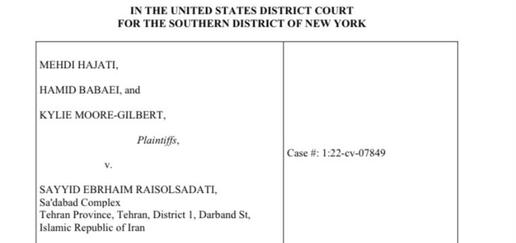

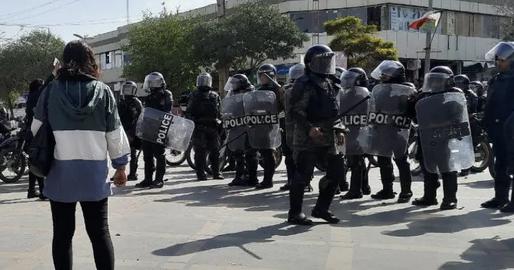
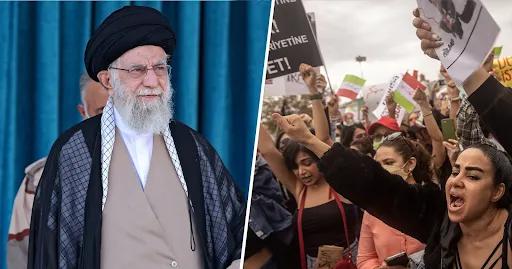
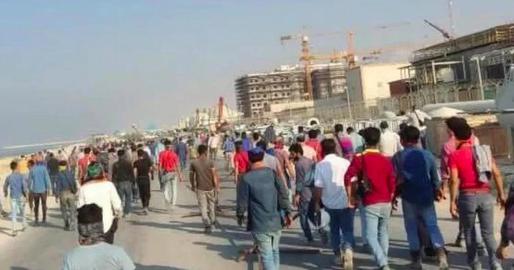
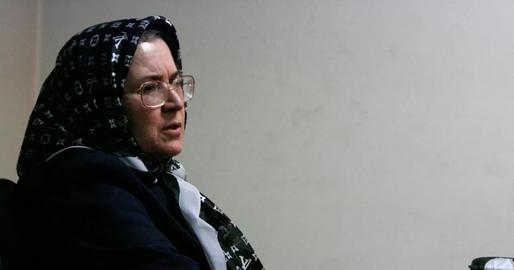
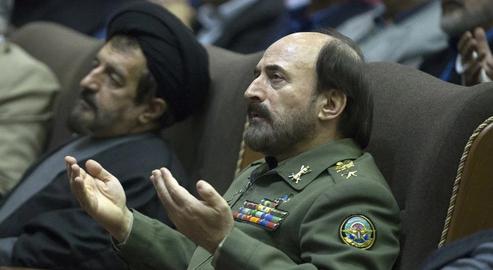
comments